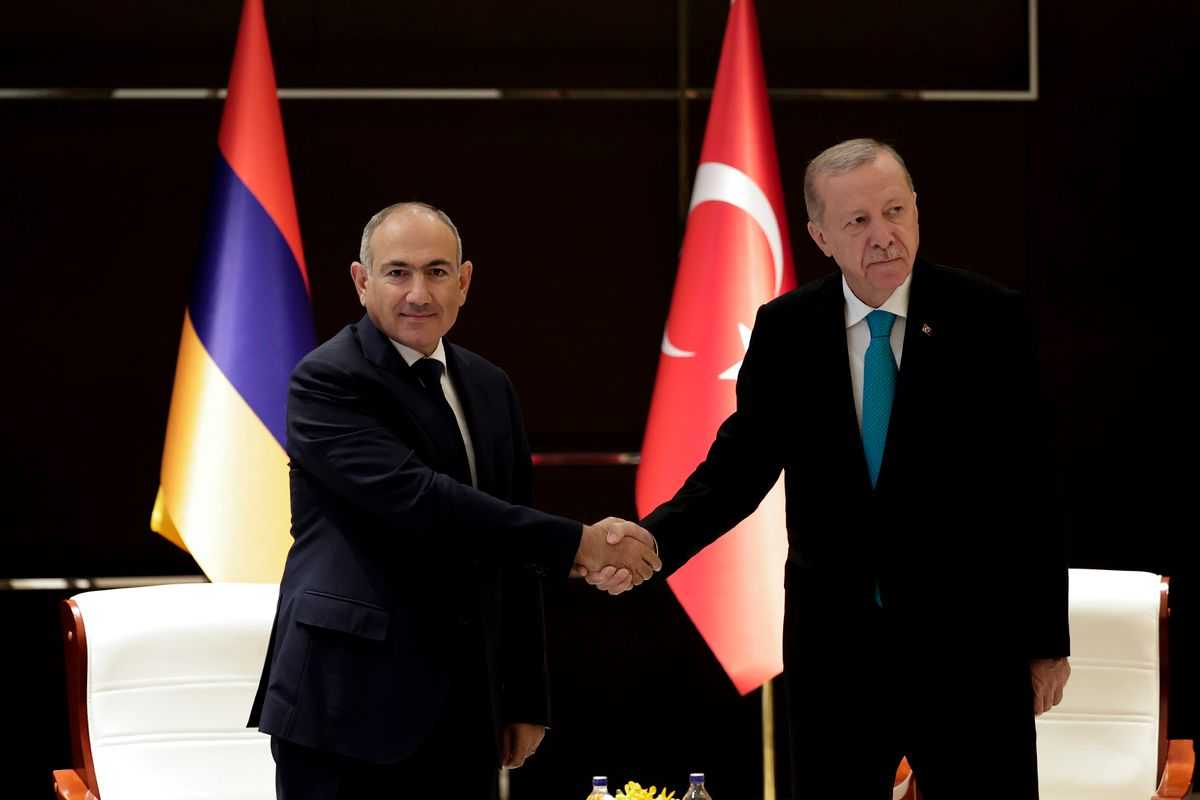
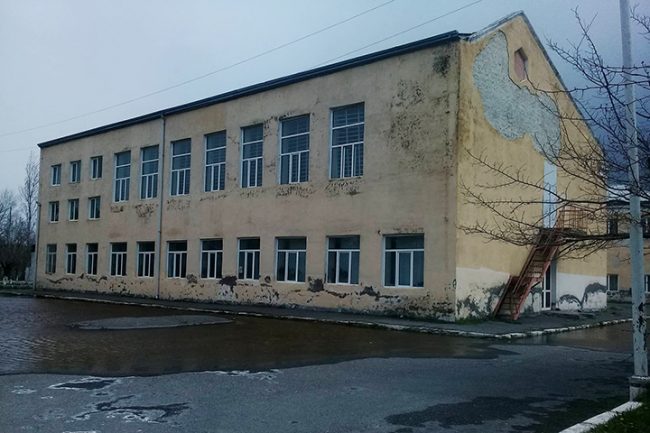
 Thirty years have passed since the beginning of the Nagorno-Karabakh conflict, and a generation has grown up with the spectre of conflict hanging over them. For those children who felt the war first-hand, displaced and moving from place to place throughout their childhood, the prospect of continuing bloodshed is especially hard to bear.
Thirty years have passed since the beginning of the Nagorno-Karabakh conflict, and a generation has grown up with the spectre of conflict hanging over them. For those children who felt the war first-hand, displaced and moving from place to place throughout their childhood, the prospect of continuing bloodshed is especially hard to bear.
Parvana Gurbanova, 30, was displaced from the village of Yukhari Abdurrahmanli in the Fuzuli District in August 1993.
‘I was 5 or 6 years old. Till the end of our displacement, my mother made her four children sleep in clothes. My childhood memories mostly relate to war. The most important moment I remember is that I kissed the wall of our house when leaving. I don’t know what I was feeling. Maybe I could feel that I would never return home again.’
Three generations of Parvana’s family gathered at their KRAZ heavy truck and left their villages.
‘We were only able to take some blankets, a dress, and a meal. There’s only one childhood photo of me; I cut it out of a group picture. We couldn’t take much from our house,’ remembers Parvana.
After leaving their village, the first place they settled was the village of Boyuk Bahmanli, also in the Fuzuli District. At that time, Armenian forces had not yet reached the village. For 15 days they stayed in the house of someone Parvana cannot now recall. Then they moved to the house of her grandfather’s friend in Jalilabad. After staying there for about four months, they took shelter in an abandoned office building.
A cruel man
‘The owner of that office was a cruel man. Sometimes, he attacked us to make us leave quickly… but we had no place to go. We went through so much hardship there. My father used to stand in a queue for hours for bread and flour… Sometimes he came back empty-handed, and there were four hungry children at home. But our situation in the village had been good. We had plots of land. We also had separate fruit and vegetable gardens.’
Parvana graduated from 11th grade in Jalilabad. Since there was no IDP school in the area, she studied at a city school.
‘I was treated differently at school; it was as if the other children felt sorry for me. I don’t know why, for some reason, the attitude towards IDPs was clear. Finally, I got used to it.’
A history of endless immigration
After Parvana graduated from secondary school, the family went to Baku. At first, they lived in a slum set up in the yard of an oil refinery. After some time, they moved to a normal house. She currently works as a website administrator in Baku.
‘I don’t want war. I say this as someone who has seen war, suffered from its complications and misery. I think the younger generation is more interested in business — social and economic issues — than war. A healthy mind does not want war. I have built a life here, and I don’t think I’ll return to our village. I don’t want to migrate anymore; I’ve spent my life migrating, and every new move means starting from scratch. The love for my homeland will always be with me, but the reality is different. The lands must be returned, they are our historical lands, but peacefully. No war, no death, not anymore.’
According to the Azerbaijani government, around 700,000 Azerbaijanis were displaced by the conflict over Nagorno-Karabakh.
Fleeing on the back of a tractor-trailer
Thirty-year-old Fakhri Mammadov lives in Chiragli, the closest village to Aghdam District’s frontline. In 1993, Fakhri and his family were forced to flee Chiragli.
‘The Armenian Army entered the neighbouring village of Bash Garvand. After that, we left the village. We were told Armenian soldiers had come to the centre of Chiragli. We left on the back of a tractor-trailer; there were 10 of us.’
Their first destination was the neighbouring Barda District. After settling in an old building in the village of Katalparag for 5–6 months, they moved north to the Yevlakh District, where they were located in a secondary school building for nine months. After this, the family of four was transferred to a settlement of modular prefabricated homes made of plywood and corrugated iron in the nearby city of Mingachevir. The settlement had been erected to temporarily house internally displaced people.
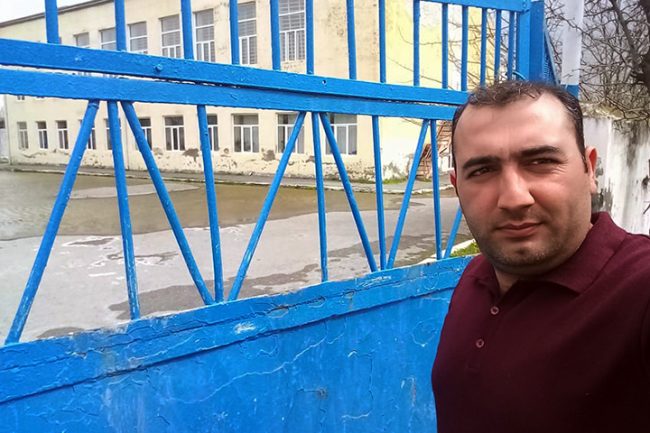
‘I attended my first year of school in this town, but we studied in a tent. I remember my first day in school; it was raining, the tent was full of water, and everything was muddy. My education was good; I was good at my studies. I studied there until year six.’
Fakhri remembers his life in Mingachevir: ‘It was like a desert, with no greenery, no trees. We would turn the house around to stay in the shade as the sun moved. There were no lights. Once a week, a water lorry came and distributed water.’
‘As there was no fuel, we would go out to collect wood and cow manure. We were using these for domestic heating and using the smoke to protect against mosquitos. It was difficult in the autumn because of the severe cold. Gas burners were distributed to both schools and homes.’
‘We also cooked food on these in the summer. It was difficult to breathe due to the heat from the burners. It was harsh to live in the [these] homes, especially in the summer. The house was made of metal and would get hot very fast, but would take a long time to cool down. We lived there for five years.’
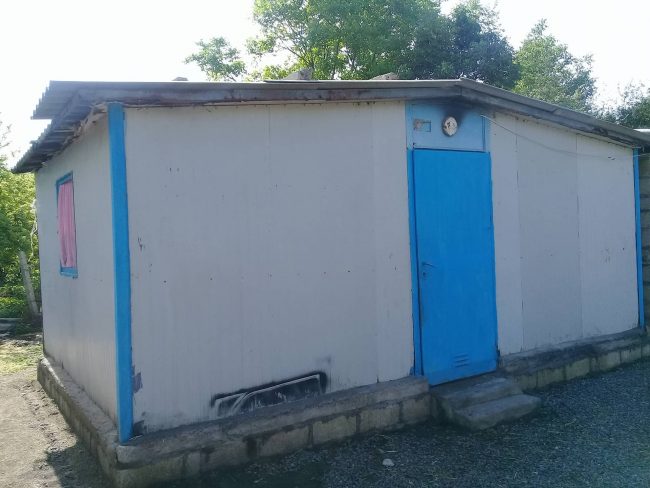
Fakhri adds that such a life inevitably affected the health of his family. His father had asthmatic bronchitis, the symptoms of which manifests when people get older.
Returning home to the frontline
When they left their homes, they took their keys with them. Fakhri said he showed the keys to his father, asking, ‘Daddy, will we go back and open the door?’ Now those keys once again rest in their door.
On 9 May 1999, the family returned to Aghdam District, to Chiragli. ‘Our house was full of bullet holes. The door and windows were broken. Then I understood the horror of war. The yard was full of bullets, rockets, and other projectiles. We were frightened, but we had to live here. Nowadays, we still hear bullets hit our home’s gates and the walls.’
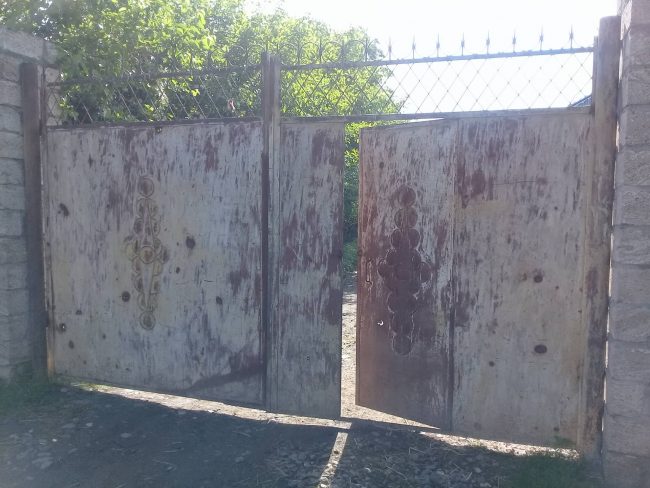
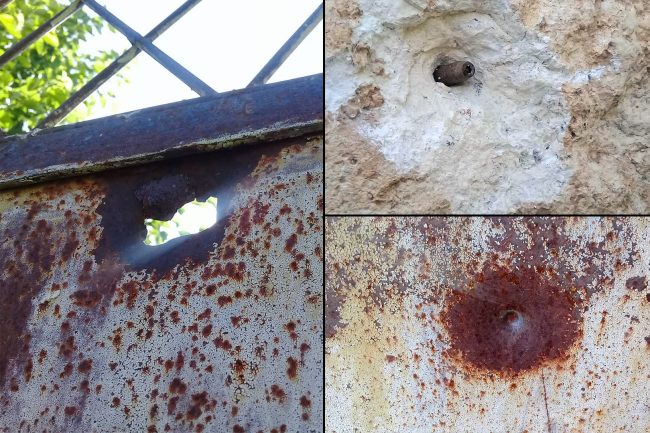
In 2004, the government transferred ownership of the modular homes to the villagers who had lived in them. Fakhri’s family disassembled theirs and set it up in their garden in Chiragli. No one lives in it, and the family mostly use it as a warehouse to store grain, barley, onions, and potatoes.
‘I don’t go a day without entering that house; it’s in front of my eyes always. It’s a house rich with memories,’ says Fakhri, smiling.
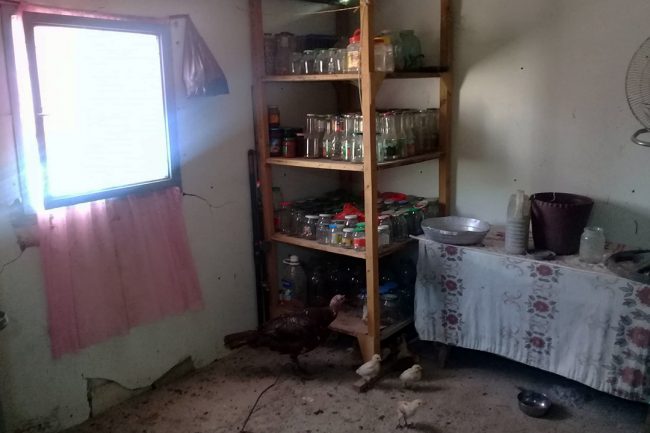
He is convinced the conflict will be resolved and that the lands lost by Azerbaijan will be returned. He says he is a peaceful person, and supports the peaceful settlement of the conflict, but believes that other outcomes are inevitable.
‘I live in war every day. I live in the closest village to the Armenian Armed Forces. My grandmother, my aunt, and my nephew were all hit by bullets in the yard of our house. We have the right to live comfortably. My father, my grandfather, and I live in a state of war. I don’t want my daughters to live in these conditions. During the April [2016] events, I took my family out of the house, took them to a safe place; my children were little, they did not understand what was happening. I hope that they will grow up in a very comfortable environment. War or peace, it must be one of them. I’m tired of living like this.’
[Read from the other side of the conflict: Young men in Nagorno-Karabakh remain defiant in the face of war]
 This article is published as part of International Alert’s work on the Nagorno-Karabakh conflict, which is part of the European Partnership for the Peaceful Settlement of the Conflict over Nagorno-Karabakh (EPNK), a European Union Initiative. All opinions expressed are the author’s alone, and may not necessarily reflect the views of OC Media, International Alert or its donors.
This article is published as part of International Alert’s work on the Nagorno-Karabakh conflict, which is part of the European Partnership for the Peaceful Settlement of the Conflict over Nagorno-Karabakh (EPNK), a European Union Initiative. All opinions expressed are the author’s alone, and may not necessarily reflect the views of OC Media, International Alert or its donors.






